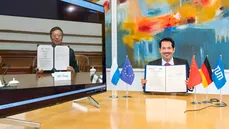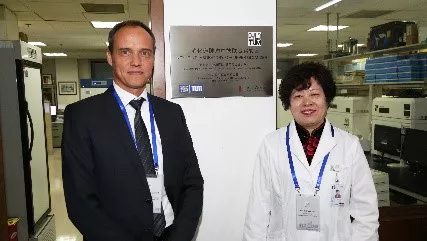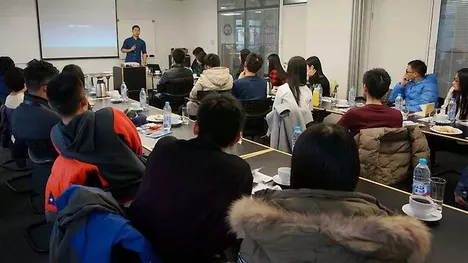
The QS World University Ranking has rated TUM as the best university in Germany for the eighth time in a row. Worldwide, it ranks 49th among the 50 best universities. The top 50 also includes numerous international partner universities of TUM. The two top Chinese universities, Peking University and Tsinghua – one of our flagship partners – are ranked 12th and 14th in the QS ranking. Also in the top 50: TUM's long-standing partners Zhejiang University and Shanghai Jiao Tong University.

At national level, all TUM partner universities in China are again listed in the Double First-Class University Initiative in 2022.
This elite funding program for Chinese higher education institutions provides universities with special advantages for study and research.
The Double First-Class Initiative is similar to the German Universities Excellence Initiative in so far as one of the program's goals is to promote top university research and improve their global competitiveness.
Total focus on innovations and outcomes
The Chinese Ministry of Education released the results of the second round of the Double First-Class Initiative in February. The selection includes 147 universities with 59 basic subjects such as mathematics, physics, chemistry and biology, 180 engineering subjects and 92 philosophical and social science subjects.
The current round of the Double First-Class Initiative differs in many ways from the program's initiation phase in 2017 to 2021. For example, it no longer distinguishes between first-rate universities and universities with first-rate disciplines.
The Ministry of Education justified the move by stating that “the construction of 'double first-class' in the new stage should guide the universities to focus on innovation in relevant fields and achieve substantial breakthroughs”.
TUM's strategic partners assigned with special status
In the current round of the Double First-Class Initiative, Peking University as well as Tsinghua University have been granted special autonomous status based on their outstanding achievements, allowing for flexible distribution of funding across disciplines. Tsinghua and Peking University are both strategic partners of TUM.
Role model partnerships with Peking University and Tsinghua

TUM and Peking University have been collaborating intensively for many years, among other things in gastric cancer research. In October 2018, the partners established the joint research presence PYLOTUM in Beijing. The PYLOTUM is a lighthouse project funded by the German Federal Ministry of Education and Research (BMBF) and an important milestone in the more than ten years of successful collaboration between TUM and the Peking University Health Science Center.
“Among a total of only eight approved Sino-German projects, it is the only laboratory in biomedical research,” explains Kai-feng Pan, head of PYLOTUM on the Chinese side, who was honored as a TUM Ambassador by TUM President Thomas F. Hofmann in 2020. “For us, the lab is not only a think tank for experts, but also a training center for young male and female doctors and scientists.”
TUM entered into a flagship partnership with Tsinghua University in October 2020 to promote mutual interests and encourage further collaborations – particularly with the Tsinghua Shenzhen International Graduate School (Tsinghua SIGS) in the Shenzhen Innovation Center in southeastern China. Since signing the Memorandum of Understanding, both universities have been pursuing new ideas for cooperation in the flagship focus areas of entrepreneurship, lifelong learning and education.
Resting on one's laurels is no longer possible
Another radical change in the Double First-Class Initiative: Since this round, there is now the possibility for the first time that universities can be excluded from the program. Sixteen fields at fifteen universities have been given a warning in light of this. They have not yet been eliminated from the program, but will be re-evaluated next year.
This is the first time that an exit mechanism has been explicitly proposed in a funding program for Chinese universities. Related reports said that the evaluation results of these universities did not quite meet expectations. Compared with similar funded subjects in other universities, their overall development level, sustainable development capability and growth improvement were relatively backward, they said. Most of the affected universities are located in the economically weaker western or central regions and face the dilemma of losing excellent talents.
Strengthening international cooperation and exchange

Another key development area proposed in the second round of the Double First-Class Initiative is boosting international cooperation and exchange between universities.
In the past two years, international university collaborations and exchanges between Chinese and German students and scholars have been mostly limited to online formats due to the severely limited travel opportunities in China.
The inclusion of this item shows that international cooperation between universities at the best Chinese universities should continue to play an important role.
TUM has defined China as a strategically important partner country since the first round of the Excellence Initiative and established its first international liaison office, TUM Beijing, in Beijing in 2011. For more information about TUM's cooperation with Chinese universities, please contact TUM Beijing liaison officer Zhenshan Jin.